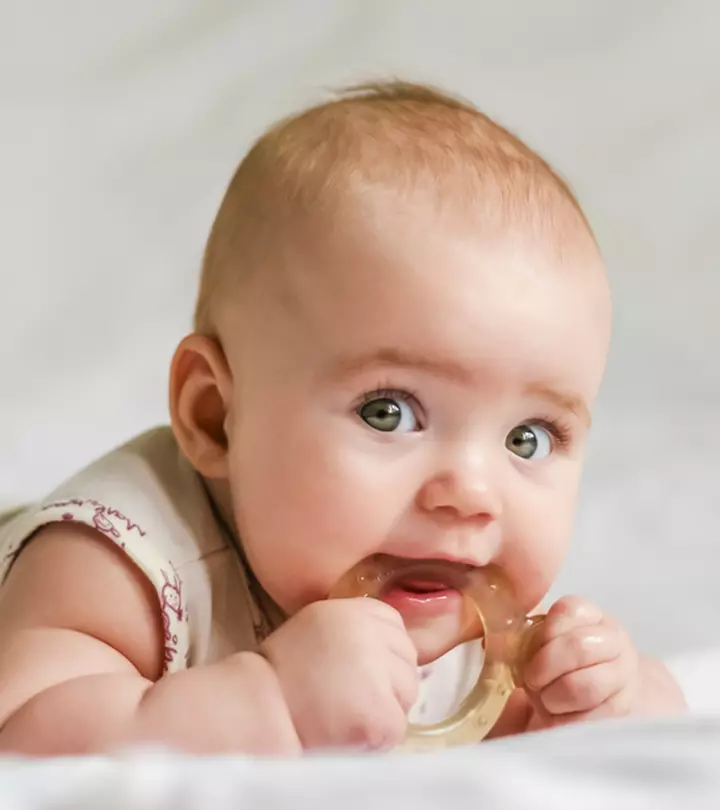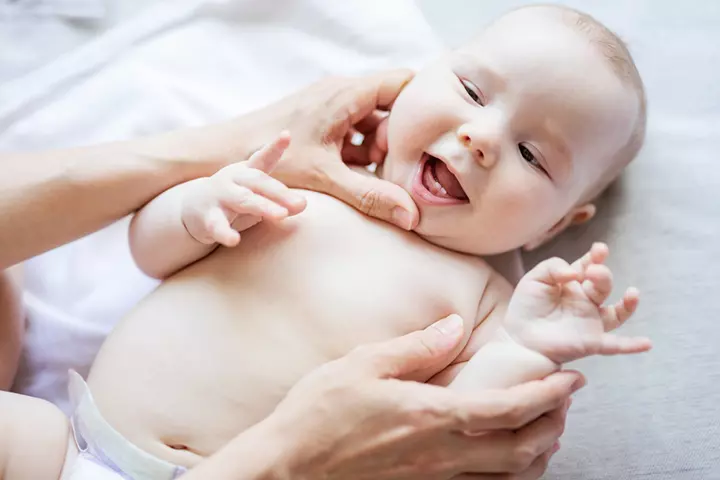
Image: Shutterstock
During their first year of life, babies reach various milestones, including the emergence of their first set of baby teeth. While this can be incredibly adorable, the teething process may not always be smooth or painless. In fact, teething can be quite uncomfortable for most babies, and some may even experience a slight increase in body temperature as a new tooth prepares to break through their gum surface. This can make the journey of baby teeth quite challenging and painful for both the baby and their parents, often leaving caregivers wondering whether their little one is unwell or simply teething. Typically, babies cut their first tooth around 6 months, and most children have all their baby teeth by the age of 3. This extended period can create uncertainty. If you’re a parent embarking on this journey with your baby and need clear signs to distinguish teething symptoms from a fever caused by other factors, we’re here to help. Read on to learn more!
Does Teething Cause Fever?
Image: Shutterstock
According to the American Academy of Pediatrics (AAP), when babies are teething, they might have a small increase in their body temperature, but it’s not a full-blown fever. A regular fever is when their temperature is higher than 100.4 degrees Fahrenheit (rectal) or 99 degrees Fahrenheit (oral), according to the AAP (1).
Researchers studied this and found that when babies grow their first teeth, their temperature can go up a bit, but it’s not a fever (2). It’s important for parents to know this difference so they don’t mistake teething for a real fever. Teething-related temperature changes are the body’s way of reacting to new germs as babies grow. In simple terms, if your baby has a high fever, you should contact your doctor, as it’s likely not just due to teething (3).
Is Your Baby Teething Or Ill?
Image: Shutterstock
Making sure that your baby has a low grade fever is imperative so that you know for sure that they do not need any medical attention. You can do this by closely examining their symptoms and keeping an eye on them for a couple of days. Here’s how to tell if a rise in temperature is due to teething or something else.
Taking care of your baby’s teeth is important for their mouth’s health. Even before their teeth come in, you can clean their gums with a soft cloth. When their first teeth appear, around 6 months, use a small, soft toothbrush for babies and a tiny bit of toothpaste, like a grain of rice. As more teeth come in, you can use a little more toothpaste, like a pea-sized amount. Make sure your child spits out the toothpaste as they get older, but don’t worry if they swallow a bit. Brush their teeth at least twice a day, especially before bedtime. Avoid giving them sugary drinks in a bottle before bed, as this can harm their teeth. Teach them to spit after brushing as they grow, and help them eat healthy foods. Don’t forget to take them for regular check-ups with the dentist to catch any issues early.
However, the symptoms of a fever due to other external causes can be quite different. It may be brought on due to a cold or a stomach virus. Your baby may experience sneezing, vomiting, diaper rash, diarrhea, coughing, unusual drowsiness, excessive crying and fussing, lack of sleep and poor appetite and even trouble breathing (5). If your baby is experiencing these symptoms, they require immediate medical attention and should be taken to a doctor.















